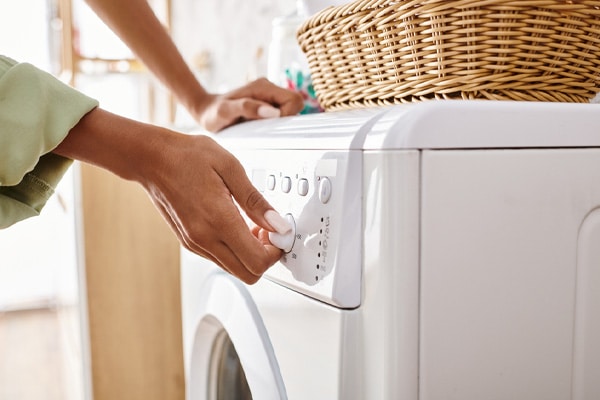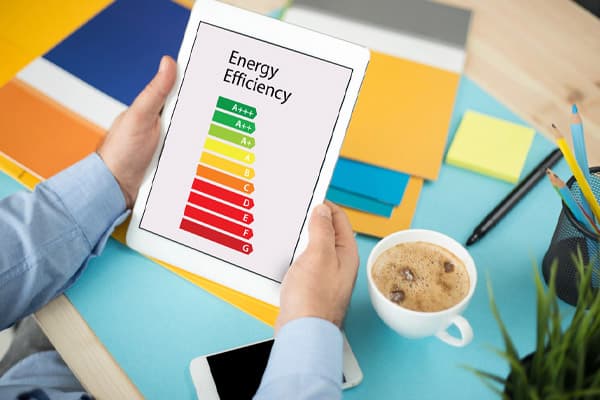When choosing a dryer for your home, deciding between propane dryer vs electric models is an important consideration. Each type offers unique benefits, and understanding their differences can help you make an informed decision based on your needs.
In this article by Tevis Energy, we’ll explore:
- Propane vs Electric Dryer Performance & Reliability
- Energy Efficiency Comparisons Between Propane & Electric
- Cost Comparisons
- How Propane and Electric Dryers Work
- Propane Dryer and Electric FAQs
By the end of this brief guide, you’ll have a clearer understanding of which option best suits your laundry needs.
Let’s dive in…
Electric vs. Propane Clothes Dryers: Performance & Reliability

Drying Time Comparison: Propane vs. Electric Dryers
Drying time is a key performance factor for dryers, as it directly impacts both energy usage and convenience. When comparing propane and electric dryers, the differences in drying time are clear, mainly due to the varying heat output and energy efficiency of each fuel source.
Propane Dryers: Faster and More Efficient
- Higher Temperatures: Propane dryers heat up quickly, reaching higher temperatures that allow for faster drying times.
- Quicker Drying: The rapid drying process reduces cycle times, saving you time.
- Cost-Effective: Less energy per cycle is used, making propane dryers an economical option for frequent use.
Electric Dryers: Slower Drying with Higher Energy Use
- Slower Heating: Electric dryers typically heat up more slowly and often operate at lower temperatures.
- Longer Drying Times: This results in longer drying times, particularly for heavy loads like towels or bedding.
- Higher Energy Consumption: Extended drying times can lead to increased energy usage, especially in homes with large laundry volumes.
Comparison and Implications:
- Studies and user reports consistently show that propane dryers can dry clothes up to 25% faster than electric dryers. This increased efficiency is particularly beneficial for large families or commercial environments with high laundry demands.
- The quicker drying times not only improve convenience but also reduce fabric wear, as clothes are exposed to heat for shorter periods. This can lead to longer garment life, enhancing the cost-effectiveness and efficiency of propane dryers.
Overall, propane dryers stand out for their faster drying times, providing both short-term and long-term advantages. This makes them an excellent option for those who value efficiency and productivity in their household appliances.
Talk to Our Propane Specialists: Call Tevis Energy today to speak with our expert team and get all your propane-related questions answered.
Maintenance & Lifespan Of Electric and Propane Gas Dryers
When evaluating the longevity and maintenance of dryers, propane models often have a clear advantage over electric ones. Propane dryers generally last longer due to their efficient design and sturdy construction, which handle the demands of heating and operation more effectively than electric dryers. This durability means fewer replacements and repairs throughout the life of the appliance.
In addition, propane dryers are typically easier to maintain. Their design allows for straightforward access to parts that may require cleaning or occasional replacement, such as filters and burners. This simplicity makes troubleshooting and repairs more efficient, often manageable by local technicians without the need for specialized service. As a result, maintenance costs are lower, and downtime is reduced, improving the appliance’s reliability.
Electric dryers, though durable, often have more components prone to wear, like heating elements and electronic controls. These parts can require more complex repairs, which may need specialized technicians and can raise maintenance costs over time.
With their extended lifespan and easier maintenance, propane dryers are a solid choice for those seeking a long-lasting, dependable appliance for their laundry needs.
Propane Gas vs Electric Dryer: Environmental Considerations

Propane dryers produce a smaller carbon footprint than electric dryers, primarily due to their lower greenhouse gas emissions per cycle. This enhanced efficiency helps to reduce the overall environmental impact of routine laundry tasks.
As a sustainable energy option, propane is gaining recognition for its environmental benefits. Recent improvements in propane production, such as more efficient refining and recovery processes, have further strengthened its sustainability credentials. This makes propane an important element in broader sustainable energy strategies, providing a cleaner alternative to traditional fossil fuels.
Get Started with Propane: Contact Tevis Energy today to discuss your needs and learn how switching to propane can save you money while reducing your home’s environmental impact.
Technological Innovations in Propane Clothes Dryers
Propane dryers now feature advanced technologies, such as moisture sensors and programmable settings, which match or even surpass the capabilities of electric dryers. These innovations help optimize drying efficiency by automatically adjusting heat and drying time based on the load, leading to energy savings and better fabric care.
Additionally, propane dryers are becoming more compatible with smart home systems. They can be integrated into home automation setups, enabling users to control settings remotely and receive maintenance alerts. This integration adds convenience and enhances operational efficiency, making propane dryers an ideal choice for modern households.
Financial Incentives and Rebates for Propane Gas Dryers

Propane dryers are often eligible for a variety of rebates and incentives that can greatly reduce the initial purchase cost. These financial incentives, provided by government agencies and manufacturers, are designed to encourage the use of energy-efficient appliances. By utilizing these rebates, consumers can lower the upfront cost of propane dryers, making them a more attractive and cost-effective option in the long run.
Learn About Propane Benefits: Contact Tevis Energy today to learn about the many benefits of propane solutions and how they can enhance your home’s energy efficiency.
Efficiency Of Propane Vs. Electric Dryers: A Comparison
In this section, we’ll examine the energy usage of electric and propane dryers, emphasizing their efficiency and overall cost-effectiveness.
Energy Consumption

Energy consumption is a key consideration when comparing propane and electric dryers. Propane dryers are known for their superior energy efficiency, primarily because they reach higher temperatures more quickly. This ability to dry clothes faster means the dryer runs for a shorter period, consuming less energy overall.
Studies suggest that propane dryers can save up to 20% in energy costs compared to electric models. The exact savings depend on factors like local energy prices and usage patterns, but propane’s efficiency in converting fuel to heat generally leads to lower operational costs. According to the U.S. Department of Energy, propane appliances can be up to 50% more energy-efficient than electric models, depending on the appliance and how it’s used.
This efficiency is not only due to propane’s direct use as a heating source but also because it reduces the demand on household electrical systems, which is particularly beneficial for homes with high electrical consumption.
Cost-Effectiveness
When comparing the cost-effectiveness of propane and electric dryers, it’s important to look at both short-term and long-term financial impacts on utility bills. While propane dryers may have a higher upfront purchase price, they typically result in lower monthly energy costs due to their more efficient energy usage.
Immediate Cost Implications:
- Electric Dryers: Electric dryers typically have lower upfront costs, making them an attractive option for those on a budget. However, they consume more power during operation, which can lead to higher electricity bills, especially in regions with high electricity rates.
- Propane Dryers: While propane dryers may require a higher initial investment, their superior energy efficiency reduces fuel consumption per drying cycle. This means lower ongoing costs over time, making them a more cost-effective choice in the long run despite the higher upfront price.
Upgrade to Propane with Confidence: Reach out to Tevis Energy today and let our experts show you the many benefits of using propane in your home.
Long-Term Financial Benefits:
- Efficiency Savings: The higher efficiency of propane dryers can compensate for the higher initial cost. For households with large amounts of laundry, the energy savings over time can be significant, making propane dryers more cost-effective in the long run.
- Durability: Propane dryers not only save on energy consumption but also tend to have a longer lifespan than electric dryers. This durability allows the initial purchase cost to be spread over more years of service, further enhancing their cost-effectiveness.
- Predictability of Costs: Electricity prices are subject to fluctuations based on regional energy demands and utility regulations, making them less predictable. Propane costs, while variable, tend to rise more slowly, offering a more stable and predictable long-term expense.
While both propane and electric dryers have their benefits, propane dryers excel in offering substantial long-term savings on utility bills. This makes them an economically appealing choice for homeowners aiming to reduce their household energy expenses over time.
Understanding Propane & Electric Dryers
Below, we discuss how propane and electric dryers operate.
How Propane Dryers Work

Propane dryers use propane gas as a heat source. The gas is ignited in a burner assembly, creating a flame that heats the air. This heated air is then circulated through the drum where the laundry is tumbled, efficiently drying the clothes.
The use of propane allows these dryers to reach higher temperatures more quickly than electric models, improving drying efficiency and speed. This results in faster drying times and, over time, can lead to lower energy costs.
Discover the Efficiency of Propane: Contact Tevis Energy today to discover how our propane solutions can improve your home’s efficiency and comfort.
How Electric Dryers Work
Electric dryers generate heat through electrical heating elements. When the dryer is turned on, electricity flows through these elements, causing them to heat up. The heat is then blown into the drum where the clothes tumble, evaporating moisture. Since electric dryers depend on electrical power, they tend to have longer drying times, particularly when compared to propane dryers.
These dryers require significant electricity, which can increase energy bills, especially in areas with high electricity rates. Additionally, the performance of electric dryers can be impacted by the capacity of residential electrical systems, sometimes necessitating specialized wiring or circuit upgrades to function efficiently.
FAQ: Propane Dryer vs Electric Clothes Dryers

How Do Propane Dryers Compare in Safety to Electric Dryers?
Propane dryers are designed with several safety features to prevent leaks and ensure proper operation. When installed correctly and regularly maintained, propane dryers are just as safe as electric dryers, providing peace of mind to homeowners.
Are Propane Dryers More Expensive to Operate Than Electric Dryers?
Although propane dryers tend to have a higher initial purchase price, they usually result in lower operational costs over time. This is because propane dryers are more energy-efficient and dry clothes faster, reducing energy consumption and potentially lowering utility bills.
What Kind of Maintenance Do Propane Dryers Need?
Propane dryers require minimal maintenance, which typically includes cleaning the vent regularly and checking the propane connections and burner periodically. These tasks are similar to the maintenance needed for electric dryers and can often be performed easily by homeowners or technicians.
Switch to Cleaner, Efficient Propane: Reach out to Tevis Energy today to discover how propane can provide a more efficient and eco-friendly heating solution for your home. Call now!
Is It Possible to Install a Propane Dryer in My Current Laundry Setup?
Yes, it is possible to install a propane dryer in most existing laundry setups. However, you’ll need a professional to ensure the propane gas line is installed correctly and that everything meets local safety standards and regulations.
How Do Propane Dryers Perform Compared to Electric Models?
Propane dryers typically offer faster heating and quicker drying times than electric dryers. This increased efficiency makes them ideal for large loads and heavier fabrics, which is especially beneficial for busy households looking to save time and energy.
Conclusion
Propane dryers provide key advantages over electric models, such as quicker drying times, improved energy efficiency, and long-term cost savings. With enhanced safety features and the ability to integrate with smart home technologies, they offer an excellent solution for consumers focused on both environmental responsibility and efficiency.
We encourage you to explore the many benefits of propane dryers for your next appliance purchase. Take advantage of available rebates and make the switch today to experience the reliability and performance of propane firsthand.
Upgrade Your Home Heating with Propane: Contact Tevis Energy today to learn about the benefits of propane heating, including cost savings and enhanced efficiency. Reach out now!
Contact Tevis Energy for Trusted Propane Delivery Services
Tevis Energy is dedicated to ensuring that homes and businesses throughout central Maryland and southern Pennsylvania remain warm and comfortable with our reliable propane delivery services. We prioritize delivering high-quality propane quickly and efficiently, ensuring you experience the warmth you need without any hassle. Our commitment to superior service means offering competitive rates and transparent, straightforward services, always placing your comfort first.
In addition to fuel delivery, Tevis Energy offers a full range of HVAC services, making Tevis Energy a one-stop shop for all of your home comfort needs. From installation and maintenance to emergency repairs, we cover all aspects of HVAC care.
Choosing Tevis Energy means partnering with a dependable provider for your home comfort needs. With a reputation for consistent, dedicated service and a strong emphasis on customer satisfaction, Tevis Energy has become a trusted name in the community. We are here to meet all your heating needs, keeping your environment cozy and inviting all winter long. Contact us today to get started!
You can click here to contact us now or call us at (410) 876-6800 to find out more! Click the link to view our service area.

Related Articles:
- Is Converting an Oil Furnace to Propane a Smart Investment?
- Role of Propane in Carbon Reduction
- Why We Enjoy Working with Propane Heating Systems
- What’s the Price of Converting from Oil to Propane?
- Is It Time to Transition from Heating Oil to Propane?
- Comparing Fuel Costs: Propane vs. Heating Oil
- 7 Compelling Reasons to Upgrade from an Oil Boiler to Propane
- Propane Tanks vs Heating Oil Tanks: A Comprehensive Comparison
- Propane vs. Electric Heat Pumps: A Comparison for Home Heating
- Why Propane Gas Stands Out: 10 Key Highlights
- Stay Safe This Heating Season: Your Guide to Propane Safety
- Ready For Winter: Preparing For Propane Deliveries In Cold Weather
